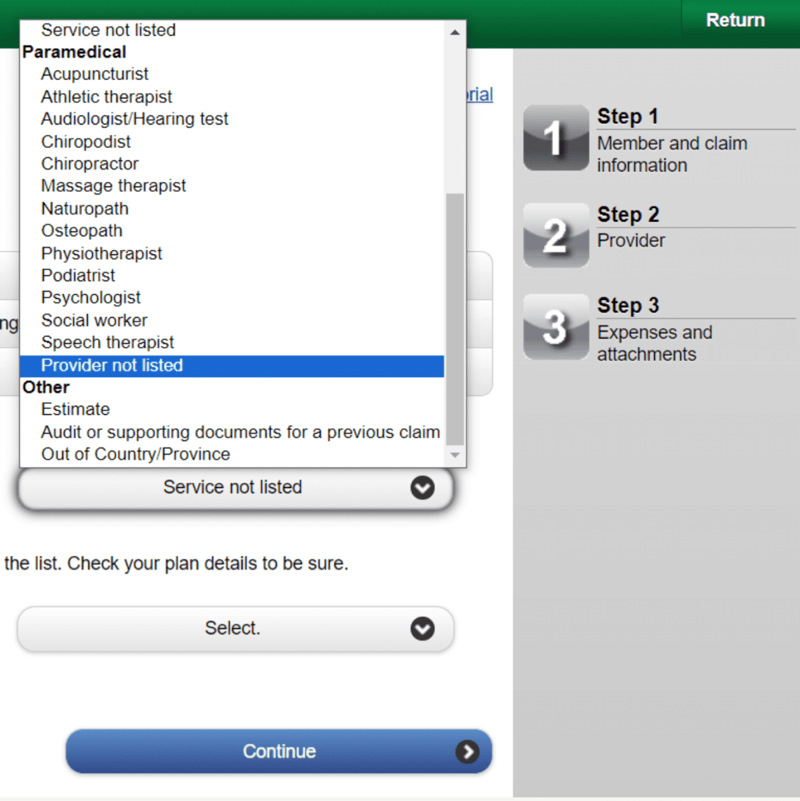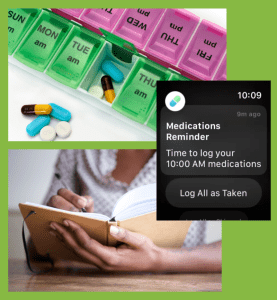
Enhancement to Vision Care Benefit
 Vision care has changed a lot through the years. You may have noticed at your last few visits to the eye doctor that quite a few tests are now part of a standard exam that were not available even ten years ago. Eye doctors screen for diseases and degeneration in addition to monitoring the sharpness of your vision.
Vision care has changed a lot through the years. You may have noticed at your last few visits to the eye doctor that quite a few tests are now part of a standard exam that were not available even ten years ago. Eye doctors screen for diseases and degeneration in addition to monitoring the sharpness of your vision.
GSI keeps abreast of changes in the medical field. Eye exams are subject to a maximum to protect the plan, but GSI’s goal is that the coverage maximum will be enough for a complete eye exam. Manulife’s “Reasonable & Customary” standard may not be enough to include what are now considered routine tests.
Recognizing this, GSI has increased the maximum.
New Maximums
Coverage is provided for charges for eye exams including refractions, when prescribed by an ophthalmologist, optometrist, or oculist:
- $200 starting Jan 1, 2024 per 12 months for persons under age 18
- $200 starting Jan 1, 2024 per 24 months for person 18 and over
The previous maximum for both groups had been $170.

Personalized Medicine Is Now Part of Your Plan
GSI is excited to announce that personalized medicine came to the ELCIC Group Benefits Plan on July 1. Here’s some information that might help you determine if it could be beneficial for you and your family.
What is Personalized Medicine?
Personalized Medicine is about learning how your genetics can affect your response to medication. If you are about to start or currently are using drugs to treat one of the issues listed below, Personalized Medicine could help your doctor prescribe the best drug for you.
At your option, you can participate in a pharmacogenetic test that identifies how you may respond to medication. A Canadian company runs the test, and the results are only for you and anyone else you give consent to share it with, such as your doctor.
All that is required for the test is a small saliva sample. A pharmacist from Personalized Prescribing Inc. will look at your genetics in the sample and create a report.
This report can help you and your doctor anticipate which drugs are more likely to help and which may have side effects. It may also recommend changes to your medication. Your doctor can use these results to help prescribe the right drug for you at the right dose.
What Tests are Eligible for Coverage?
Manulife notes that this test is only covered for certain conditions:
 a mental health condition, such as depression or anxiety
a mental health condition, such as depression or anxiety- chronic pain
- neurological conditions
- attention deficit hyperactivity disorder (ADHD)
And the test is only covered for people who are:
- starting a new medication, or
- taking a medication that isn’t working, or
- taking a medication that’s causing side effects
For more information, please visit the Manulife member site. (This page also explains how to order a test and how you will receive your results.)

Helpful Suggestions from Barb
Claim Tip #1: Medication when Travelling
Standard Policy
Prescription drugs may be purchased for a limited number of days at a time:
- maintenance drugs – 100 days
- non-maintenance drugs – 34 days
Travel plans
If you are travelling and your prescription refill date falls within your travel days, or if your travel is for more than 34 days, you may request an exception for certain eligible drugs.
To Apply for Exception
 Call Manulife customer service at 1-800-268-6195 and provide Manulife with the exact departure and return date from your trip as well as the DIN number(s) of your medication(s).
Call Manulife customer service at 1-800-268-6195 and provide Manulife with the exact departure and return date from your trip as well as the DIN number(s) of your medication(s).
Manulife will need 7 to 10 business days to process the request, so allow for enough time before your trip for the request to be approved and for your prescription to be filled. This is a one-time exception for eligible drugs. Future requests if needed will have to be re-processed.
Claim Tip #2: Provider Not Listed
Professional services are a well used benefit, as indicated by the annual report from Manulife for the ELCIC Group Benefits Plan. The report showed there were 492 claimants (these could be a Plan Member, their spouse or a dependent child); as there were just over 400 active Plan Members in 2023, this averages to more than one claimant per household. Together, these claimants made 5,013 claims.
Some members have reported challenges with making a claim for professional services. The screen shot (below) shows the list to select the type of professional services provider that you accessed, but it is not complete.
 Specifically, the following providers are covered under the ELCIC Group Benefits Plan but don’t appear in the list:
Specifically, the following providers are covered under the ELCIC Group Benefits Plan but don’t appear in the list:
- Dietitian
- Kinesiologist
- Clinical Therapist
- Marriage and Family Therapist
- Master in Social Work
- Registered Social Worker
- Registered Psychotherapist
If you are making a claim for any of these, please select “provider not listed” and continue with the prompts.

Taking Your Prescription Drugs
This information has been prepared by Manulife and its Medical Director, Cleveland Clinic Canada. It is for your general education and is not intended to be interpreted as specific medical advice.
The ELCIC Group Benefits Plan’s drug plan is there to support you and your covered family members in maintaining your health and well‑being. Here are some helpful reminders about why medications should be taken as prescribed by your doctor or pharmacist. Every situation is unique; if you have questions or concerns about your specific situation, please speak with an appropriate healthcare professional.
Taking Medication as Prescribed by Your Doctor or Pharmacist
For a variety of reasons, many people may not take their medication as directed by their healthcare team. One reason could be not having a clear understanding of why a medication is important or why a medication should be taken as prescribed. Some medications produce side effects that individuals may want to avoid. Additionally, it can be hard to remember to take a medication on a regular basis.
However, not picking up a prescription or not taking a medication as prescribed has been linked to many worsening health outcomes. These include prolonged illness, lower quality of life, and more serious health complications in the future. It can also lead to higher costs for you, your drug plan, and the healthcare system.
Do you have questions about how to take your medicine? How much? How often? Or for how long?
 Medications (and health care in general) can be complicated and sometimes difficult to understand. It can be easy to get nervous or intimidated when visiting a doctor or pharmacist, and you might leave with unanswered questions. If you don’t feel you understand the reason for a medication, how to take the medication, or have questions about how the medication will improve your health, be sure to reach out to your doctor or pharmacist. Make notes before or during the visit — or have a loved one accompany you, so you have a second set of ears and eyes. And if you think of something after your appointment, don’t delay in reaching out. A quick phone call or e‑mail can often get you the information you need.
Medications (and health care in general) can be complicated and sometimes difficult to understand. It can be easy to get nervous or intimidated when visiting a doctor or pharmacist, and you might leave with unanswered questions. If you don’t feel you understand the reason for a medication, how to take the medication, or have questions about how the medication will improve your health, be sure to reach out to your doctor or pharmacist. Make notes before or during the visit — or have a loved one accompany you, so you have a second set of ears and eyes. And if you think of something after your appointment, don’t delay in reaching out. A quick phone call or e‑mail can often get you the information you need.
Continue Medications for the Time Prescribed
Sometimes people stop taking a medication (or take it less often) when they begin to feel better. But you may risk getting sick again if you stop too soon. If you feel like stopping a medication before the end of a prescribed course, be sure to talk to your healthcare provider or pharmacist about your concerns, so they can give you the best advice.
What about Side Effects?
In some cases, medications might not immediately make you feel better, or they may even make you feel worse because of unpleasant or even serious side effects. If you feel you are experiencing side effects, follow the instructions on the medication’s packaging. In all these cases, reach out to your pharmacist or doctor.
They will review your concerns and symptoms, and they may talk to you about options to adjust your dosage, the frequency with which you take your medicine, or the type of medicine you are taking. There might be other additional approaches to managing your condition that you can explore with your doctor.
Remember to Take Your Medicine
 One of the most common reasons people don’t take their medicine is that they simply forget. Fortunately, there are tools and strategies you can try to help you remember. Options include simple pill boxes, reminder notes, medication journals, calendars, and cues from loved ones. Digital tools allow you to program reminders into your phone or computer, wearable devices, and/or apps on your smart phone.
One of the most common reasons people don’t take their medicine is that they simply forget. Fortunately, there are tools and strategies you can try to help you remember. Options include simple pill boxes, reminder notes, medication journals, calendars, and cues from loved ones. Digital tools allow you to program reminders into your phone or computer, wearable devices, and/or apps on your smart phone.
Habit stacking is another strategy to explore. This is a technique in which you create a new habit by associating it with a current habit, such as taking your medicine after brushing your teeth or immediately after your morning shower.

Have a Question for GSI?
We welcome your questions and feedback!
Email admin@elcicgsi.ca
Information and resources can also be found on the GSI website.
Winnipeg Residents: 204-984-9181 | Toll Free: 1-877-352-4247

